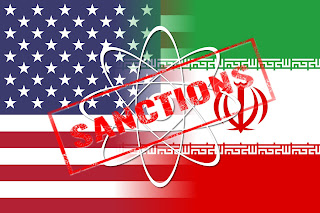Soleimani Killing: Its Affect on the Gulf Region

Where is the Middle East Headed After the Killing of Solemani Tonight I attended an event sponsored by the Al Jazeera Center for Studies focused on the topic: " Where is the Middle East Headed After the Killing of Solemani ." The program -- held on January 8, 2020 at the Al Jazeera Media Institute Auditorium -- featured four speakers: Mahommaed Cherkaoui, Senior Researcher at Al Jazeera Centre for Studies. Liqaa Maki, Senior Researcher at Al Jazeera Centre for Studies. Haoues Taquia, Researcher at Al Jazeera Centre for Studies. Majoob Zweiri, Director of the Gulf Studies Center at Qatar University. The translation services were again disappointing because of a variety of technical issues. Half the audience left after 30 minutes. I stuck around for intermittent translation services and the chance to talk with people at the reception afterwards. Accordingly, my notes are very incomplete. So, any summary here is given with a very bi...




